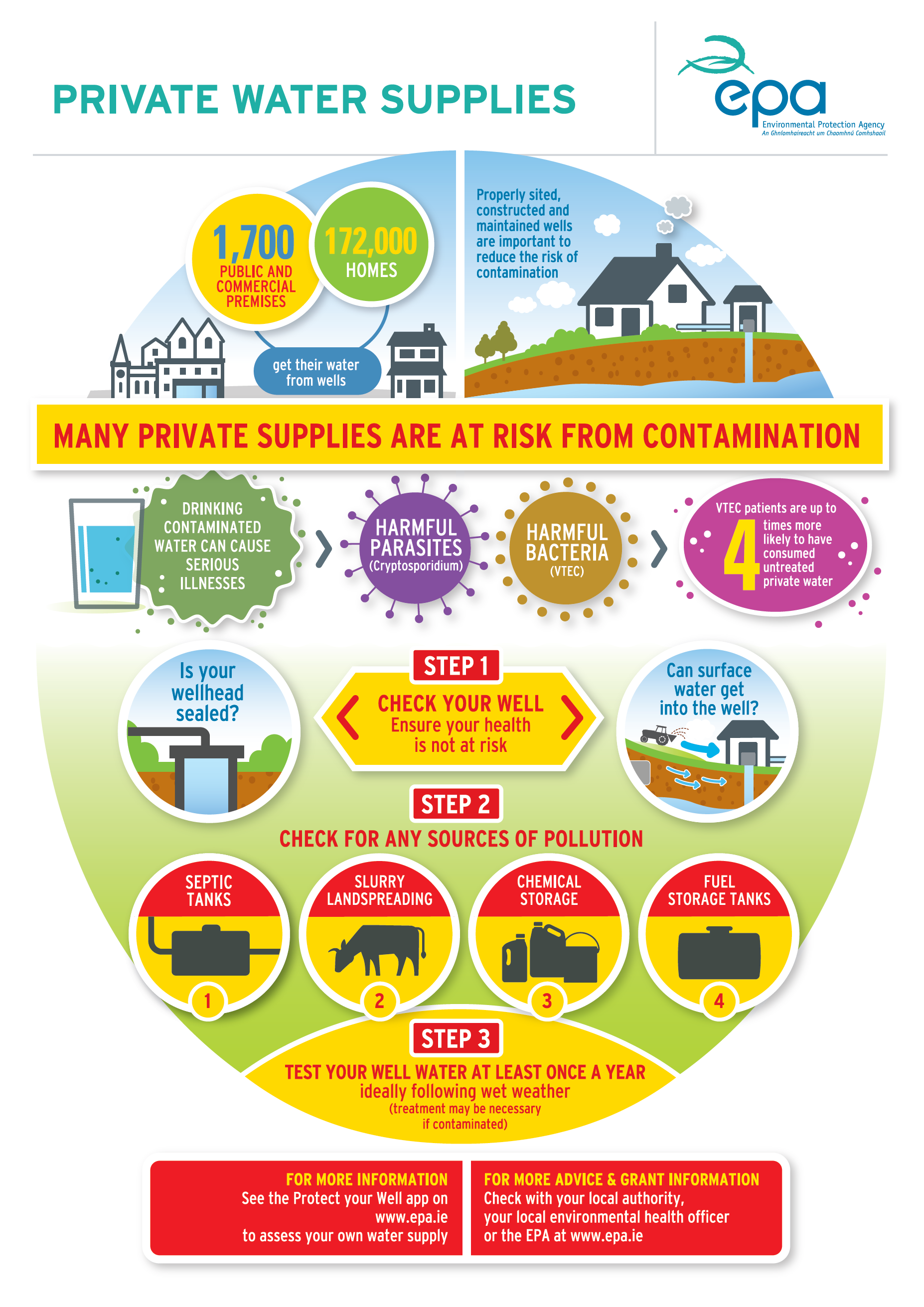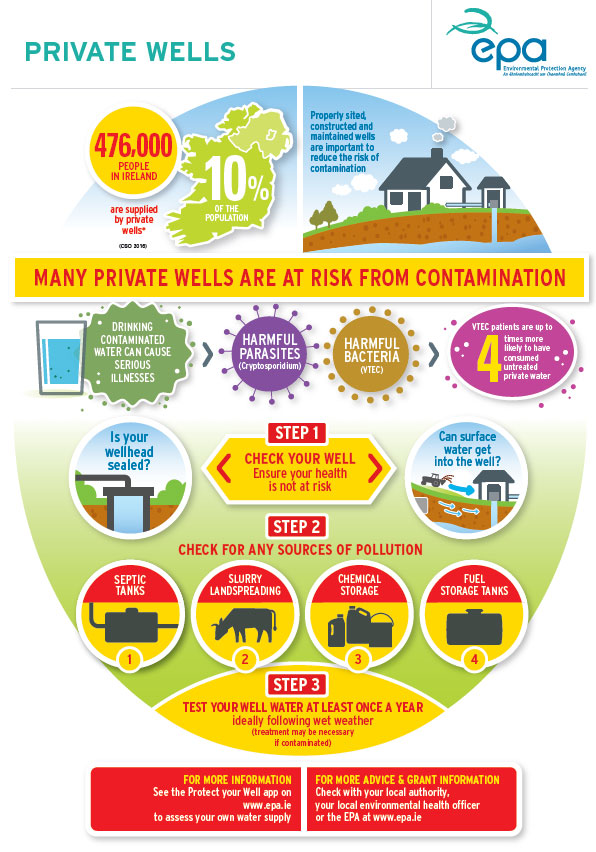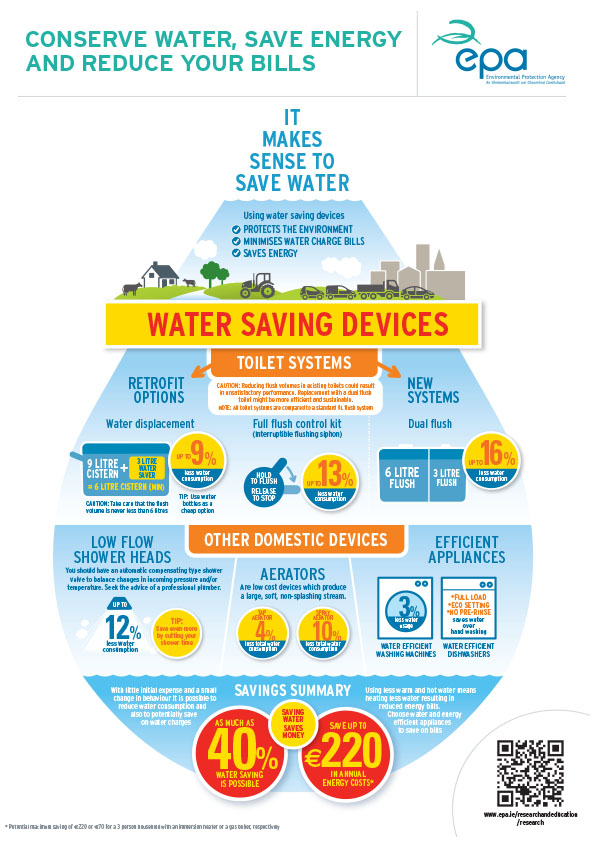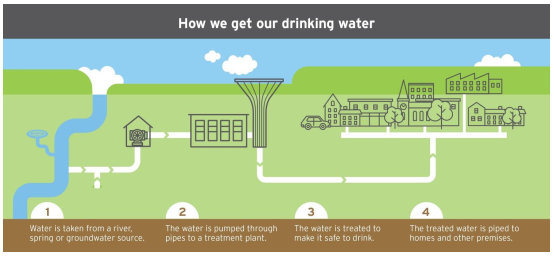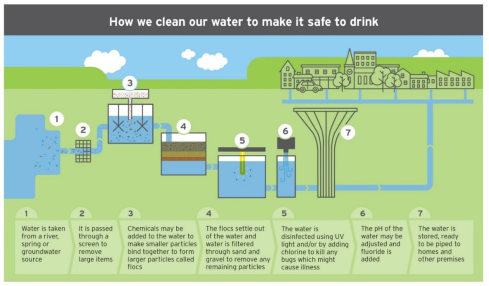What is the quality of drinking water in Ireland?
The EPA produces annual Drinking Water Reports for both Public and Private Supplies that provide an overview of the quality of drinking water.
Who does what?
Uisce Éireann is responsible for providing public water services and ensuring drinking water quality meets the standards in the Drinking Water Regulations.
The EPA is the drinking water quality regulator for public water supplies, responsible for enforcing the Drinking Water Regulations.
The Local Authorities are the drinking water regulators for private water supplies, responsible for enforcing the Drinking Water Regulations for group water schemes and businesses that have their own well. If you get your drinking water from a group water scheme you can find more information on the National Federation of Group Water Schemes website.
The HSE is responsible for public health and must be consulted by Uisce Éireann where there is a failure to meet the standards in the Drinking Water Regulations, or where there is a public health risk.
The Commission for Regulation of Utilities (CRU) is the economic regulator, responsible for ensuring that Uisce Éireann operates in an economical and efficient manner.
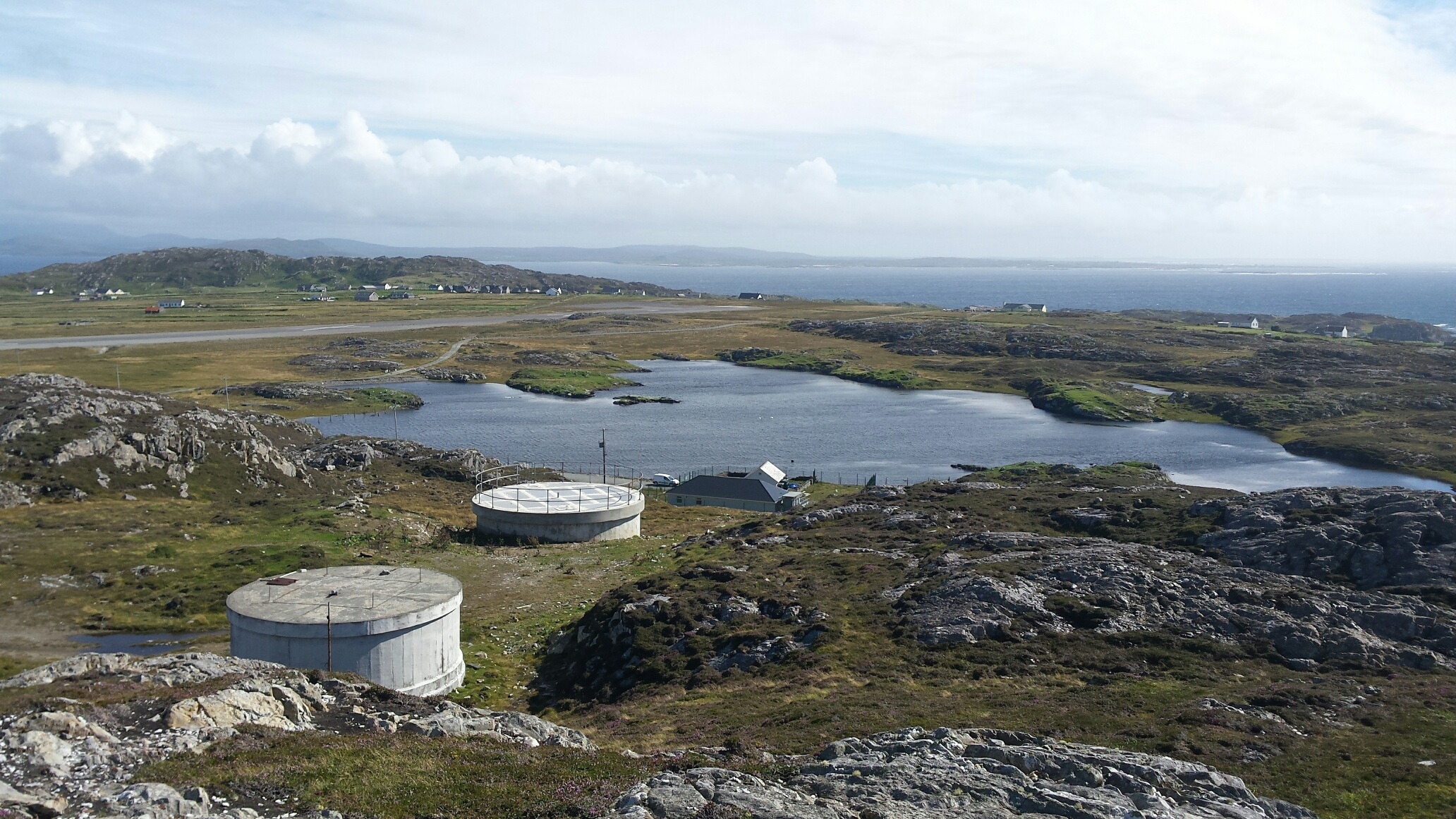
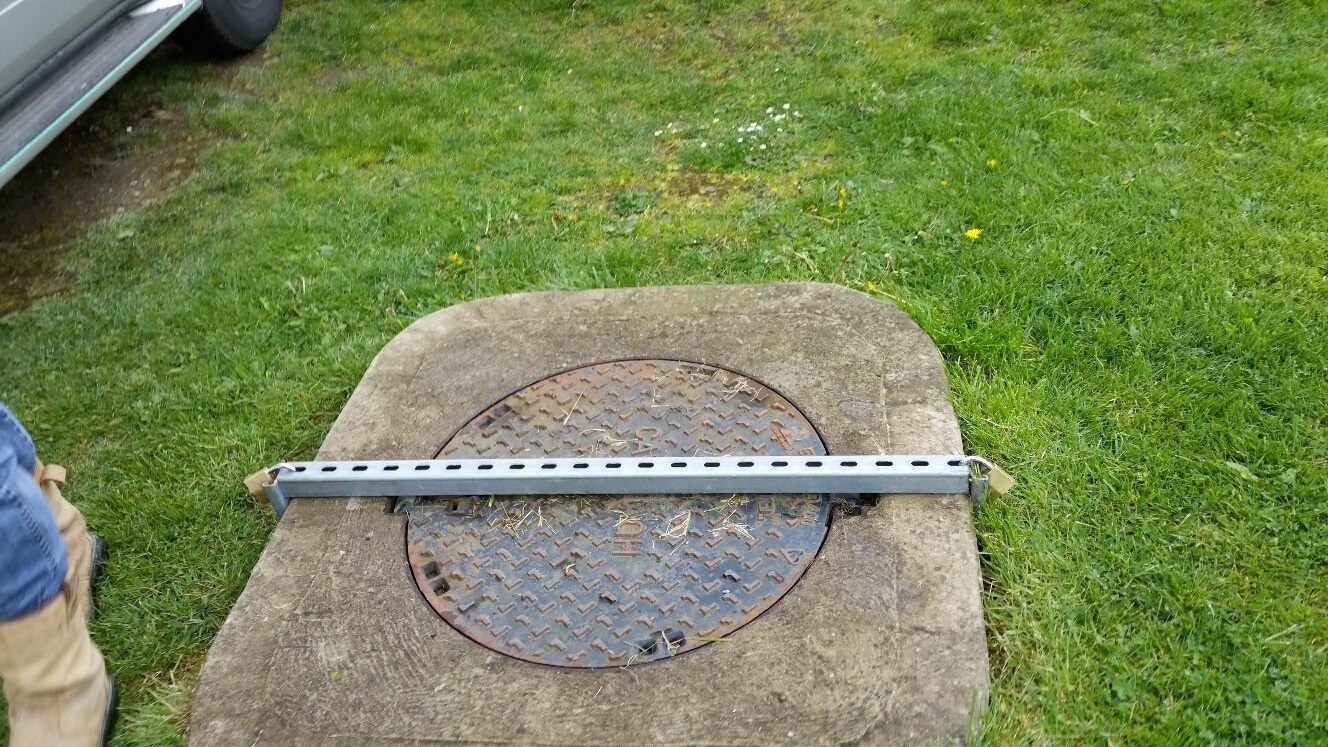
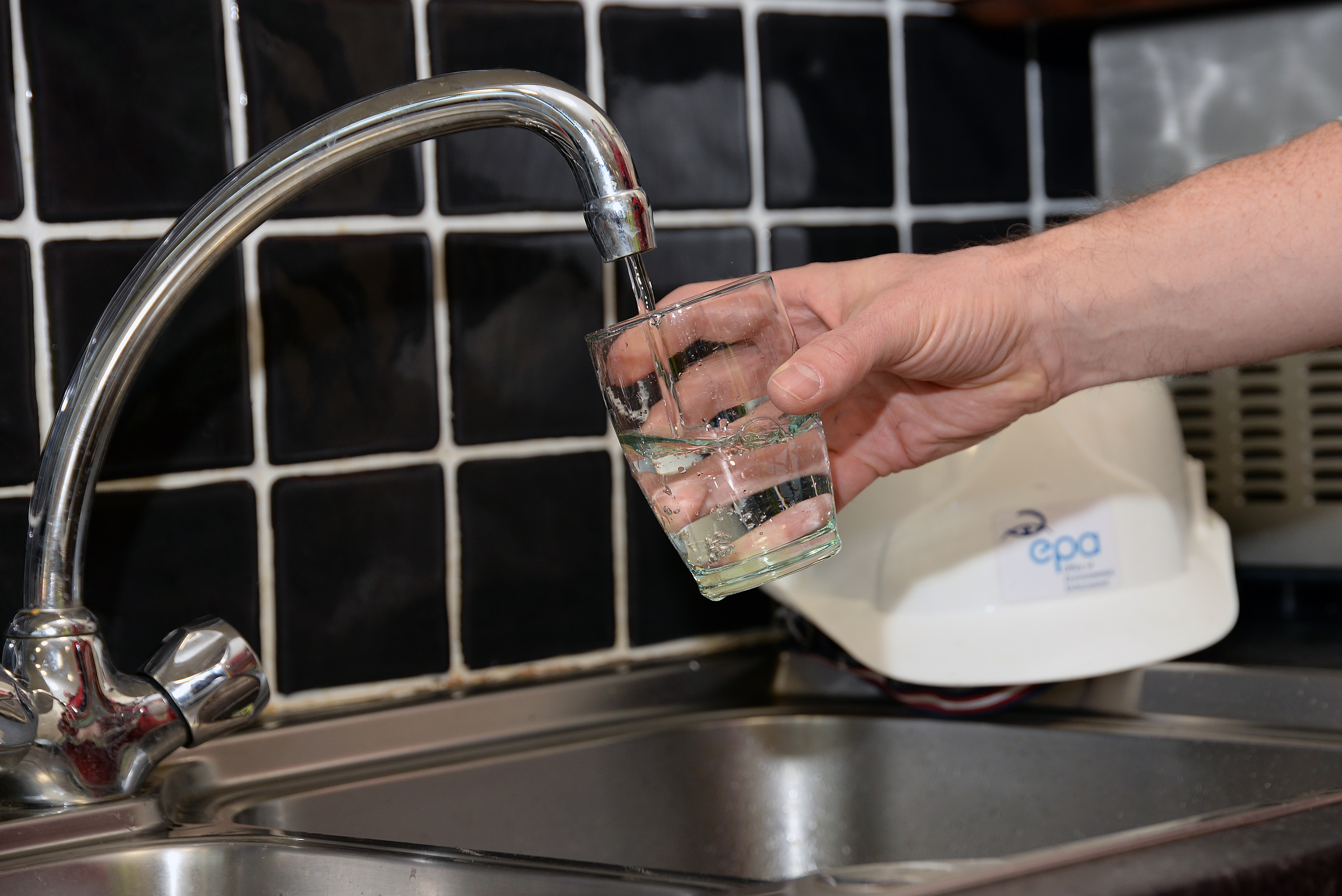

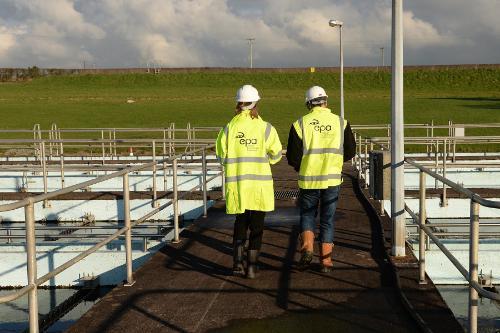
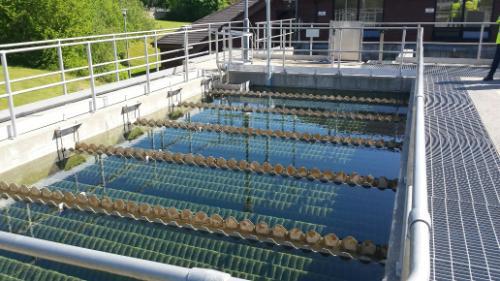
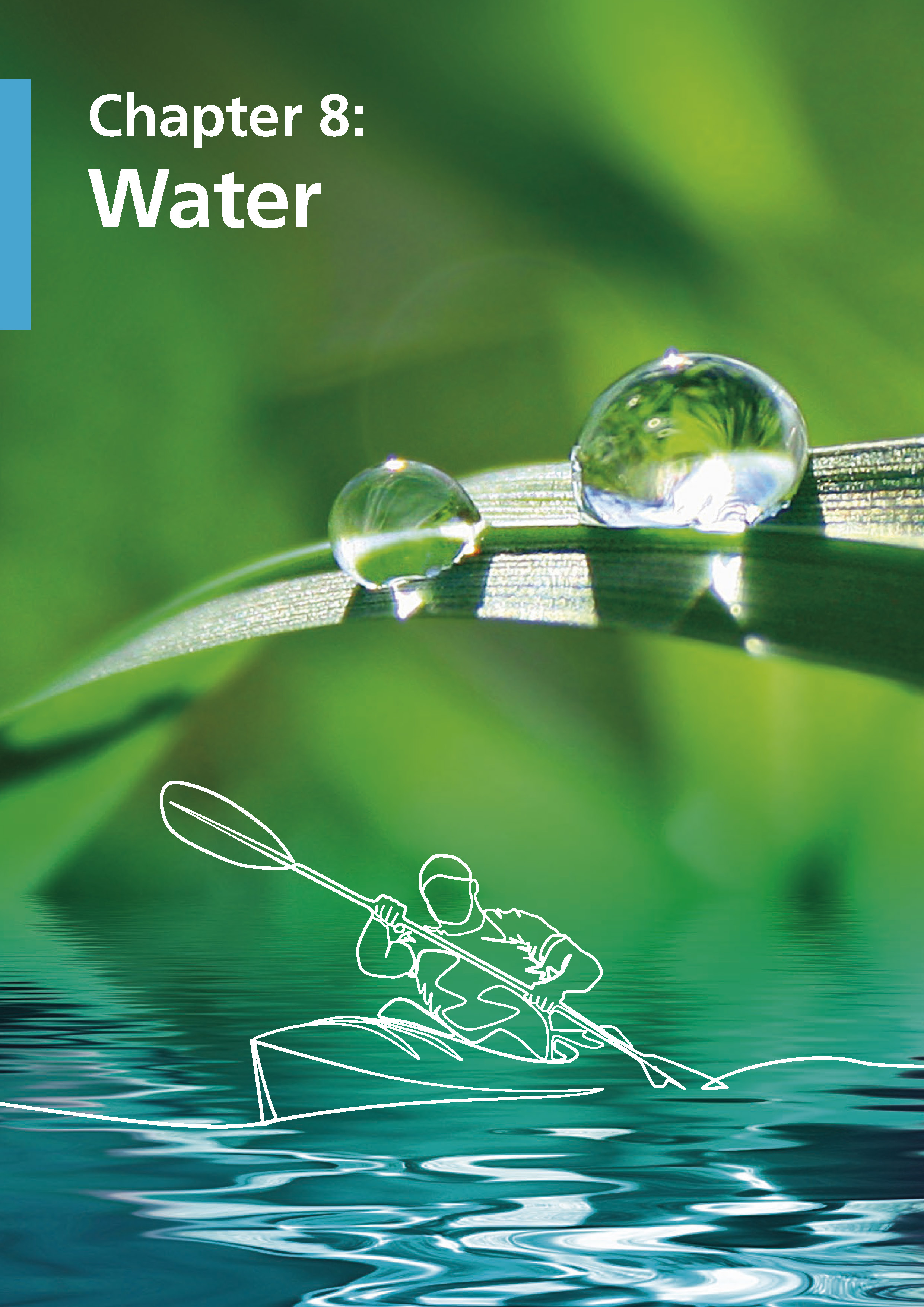
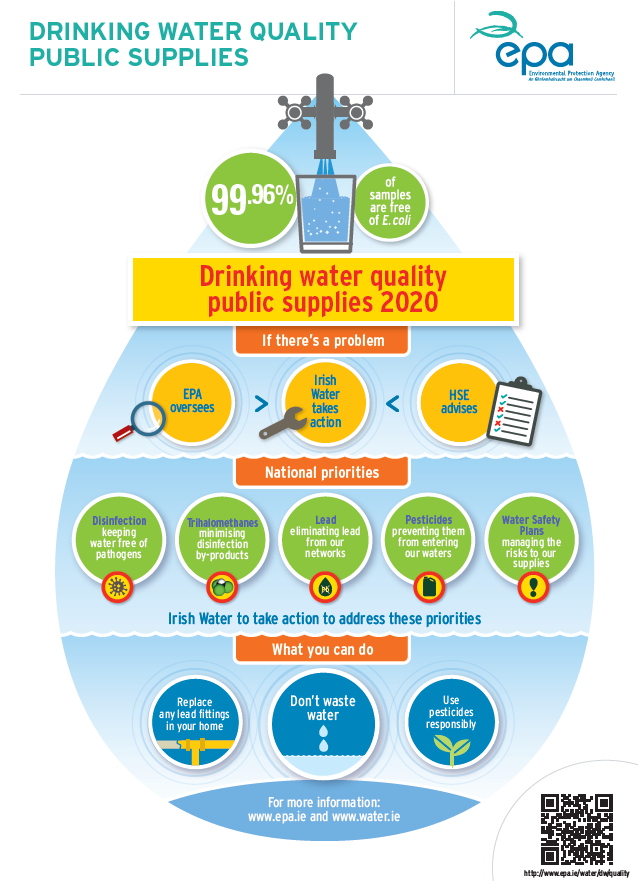
.jpg)
